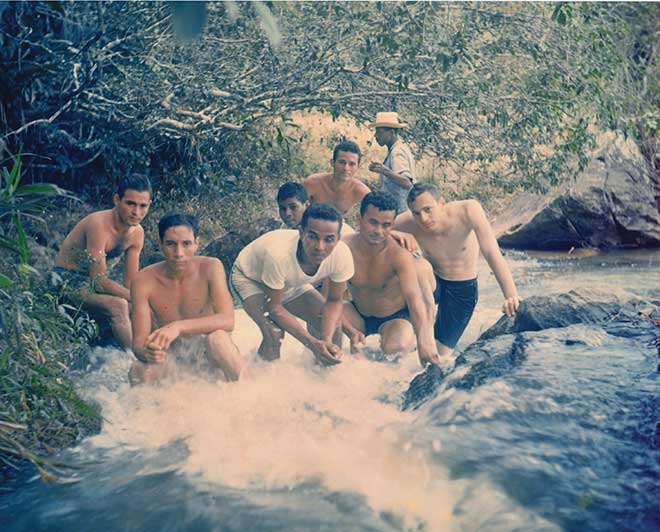Uncover any stone in our town, and there’s a senior with a story, someone who’s rubbed shoulders with the famous or lived in a place most of us either have never heard of, or can only dream about. Hearing these tales of adventure brings the great, wide world a little closer. Clayton resident Allen Krauss is one such storyteller. He looks back 50 years and remembers, as if it were yesterday, the view of Rio de Janeiro as his plane came in to land. He says that from the sky, it was the most beautiful place he had ever seen—a glittering sea, a bay, a ribbon of rainforest with mountains behind. “It was hot and humid, and sunny … very sunny.”
Krauss was 24 and fresh from New York by way of Milwaukee, where he had received eight weeks of Peace Corps training in public health and sanitation. He had arrived in Rio de Janeiro but was to take another plane to a place called Maceio to board a bus through the rainforest to his final destination, Sao Luis do Quitunde. It was an unlikely place for a New York City boy, a tiny town surrounded by sugar cane fields where chickens pecked in the dirt streets, and pigs and cattle roamed. The houses had no running water, he says, and at night, after the single generator clicked off and the air was scissory with insects, the town and its people went to bed.
“I was a young man, and I didn’t yet know what I wanted to do,” Krauss says from his Clayton living room, where Brazilian folk figures peep from the bookcases. He had been a sociology major, but his new job was building privies and going village to village inoculating residents against smallpox. He says he made his home in an abandoned maternity hospital, taking his meals (rice and beans and dried meat) at a makeshift inn, and washing himself with cups of water from the hospital’s old cistern. He looked forward to the coconut candies he bought from the market on Sundays, and the organ meats that came every so often from a slaughtered village cow.
Although Krauss had traveled with other Americans, he was the only Peace Corps volunteer in Sao Luis do Quitunde. He says he was too busy to be lonely, but still looked forward to the letters from his mother that came once or twice a month. In addition to building the privies and admininstering shots, Krauss opened a small lending library, which he stocked with books on agriculture and husbandry, and dated the daughter of a wealthy landowner.
As he talks, Krauss sorts through a small clutch of yellowing photographs: him in a river rapid, him with chums over beer or Cachaca rum sometimes brought in from a city far away. Nowadays, he keeps abreast of developments in Sao Luis do Quitunde via Facebook, and sees that the modern world has reached his little town—the lights are on, the streets are paved and cars roll through. Although he has since visited many other parts of Brazil, Krauss says he’ll never go back. “I choose not to go,” he says. “Nothing is the same anymore, and I don’t want anything to interfere with the memories.”
Pictured: Allen Krauss (far right) as a young man in Brazil.








